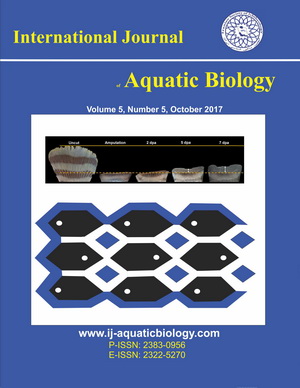Phytoremediation of heavy metals (Cd, Pb and V) in gas refinery wastewater using common reed (Phragmitis australis)
Downloads
Industrial wastewaters are of the major sources of heavy metal pollution in the environment. In the Middle East, gas and oil industry is the major source of heavy metal pollution and releases significant amounts of metals into the terrestrial and aquatic environment. In this research the capability of the common reed (Phragmitis australis) in absorbing heavy metals Cd, Pb and V from the wastewater of a gas refinery plant in Iran was investigated. The plant samples were collected from the vicinity of the Bidboland gas refinery plant in Iran and were used for the treatment of wastewaters collected from the outflow of the refinery plant. The metal concentrations were measured in the roots of the plant species before treatment and after 2, 6 and 10 days of treatment procedure. The heavy metal concentrations were measured after acid digestion and using an ICP-OES instrument. After 10 days of treatment, the concentrations of the metals in plant tissues increased by 2.5, 6.9 and 2.7 times for Cd, Pb and V, respectively. The best treatment time was suggested to be 6 days. The common reed was observed to have a very good capability in removing heavy metals from the gas refinery wastewater.








